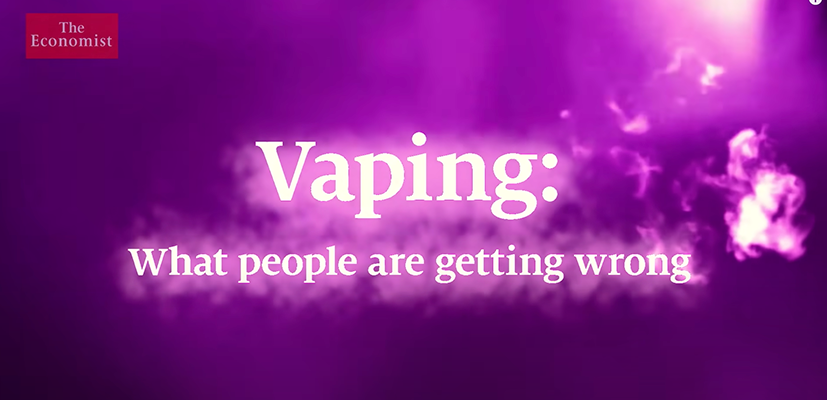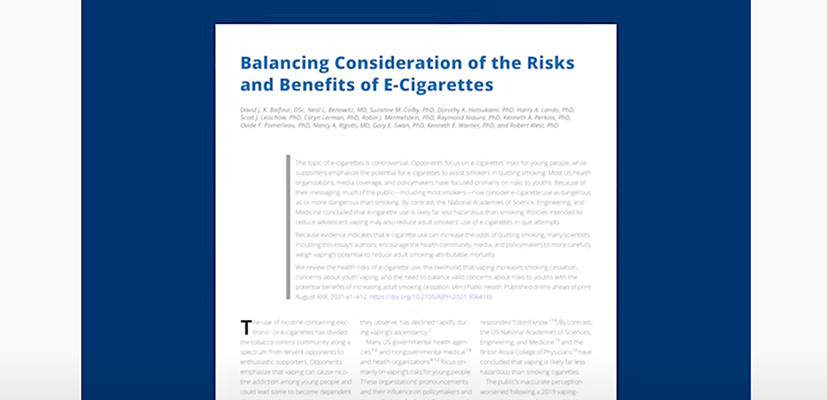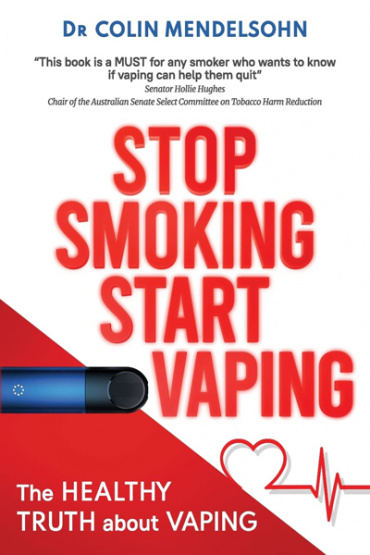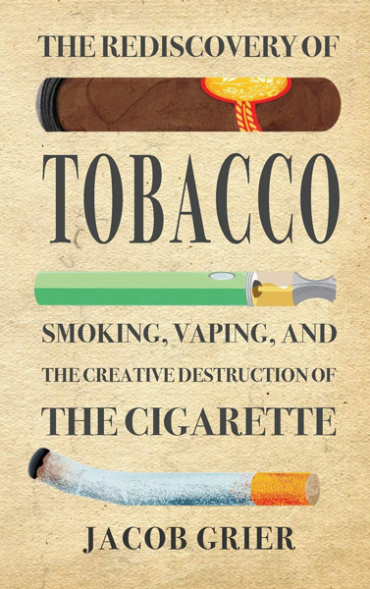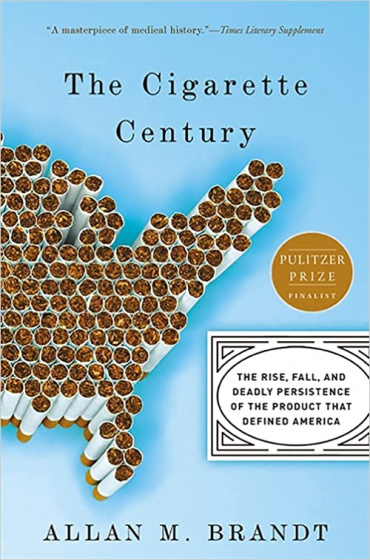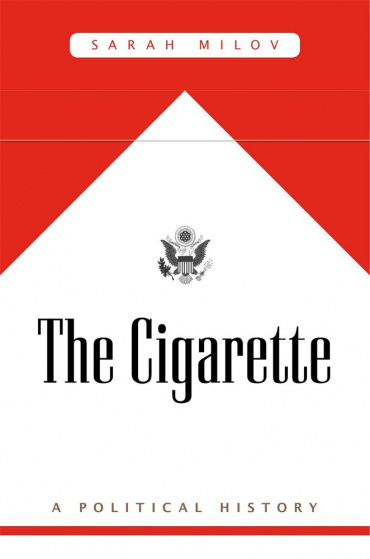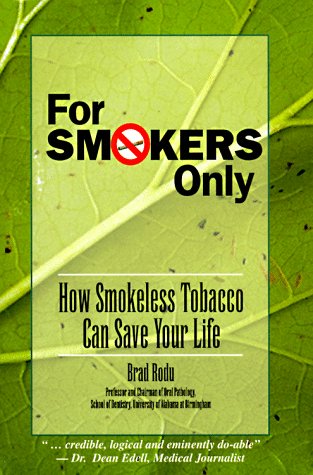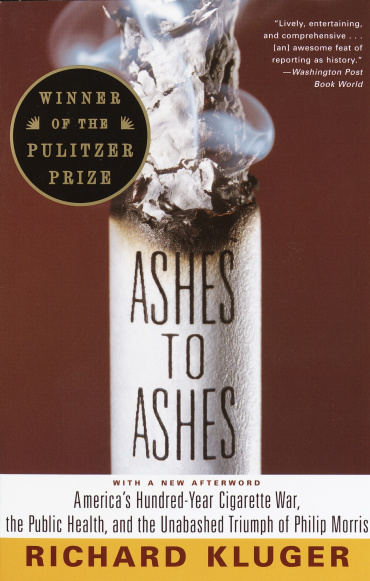Scientific Research / Articles
Smoking Cessation
July 26, 2017
"The substantial increase in e-cigarette use among US adult smokers was associated with a statistically significant increase in the smoking cessation rate at the population level."
Aug 31, 2017
"Consistent with randomized trials and those observational studies that measure frequency of e-cigarette use, both quit attempts and quit success were positively associated with increased frequency of e-cigarette use. Frequency of e-cigarette use was important in gauging the nature of these relationships."
March 24, 2018
"Daily e-cigarette initiators were more likely to have quit smoking cigarettes or reduced use compared with non-users. However, less frequent e-cigarette use was not associated with cigarette cessation/reduction. These results suggest incorporating frequency of e-cigarette use is important for developing a more thorough understanding of the association between e-cigarette use and cigarette cessation."
May 23, 2019
July 11, 2019
Feb 2021
"Studies show that tens of thousands of smokers stopped as a result of vaping in 2017, similar to estimates in previous years. Compared to the 2018 review, there is stronger evidence in this year’s report that nicotine vaping products are effective for smoking cessation and reduction."
March 16, 2021
June 29, 2021
"In smokers unable to quit using conventional methods, e-cigarettes were more effective than nicotine replacement therapy in facilitating validated long-term smoking reduction and smoking cessation, when limited other support was provided."
Dec 28, 2021
"In this cohort study, daily e-cigarette use was associated with greater odds of cigarette discontinuation among smokers who initially had no plans to ever quit smoking. These findings support the consideration of smokers who are not planning to quit when evaluating the risk-benefit potential of e-cigarettes for smoking cessation in the population."
April 28, 2022
"Respondents who initiated vaping and continued vaping daily at follow-up were nearly seven times more likely to have quit smoking compared to those who did not initiate vaping."
July 13, 2022
"Nicotine Vaping Products may represent a feasible and potentially effective short-to-medium term tobacco smoking cessation aid and/or harm reduction strategy among People Living with HIV."
Oct 19, 2022
"Population-level data suggest that smoking prevalence has dropped faster than expected, in ways correlated with increased e-cigarette use. This population movement has potential public health implications."
Funding Disclosure: Juul Labs Inc.
Funding Disclosure: Juul Labs Inc.
Nov 17, 2022
"People are more likely to stop smoking for at least six months using nicotine e‐cigarettes than using nicotine replacement therapy (6 studies, 2378 people), or e‐cigarettes without nicotine (5 studies, 1447 people). Nicotine e‐cigarettes may help more people to stop smoking than no support or behavioural support only (7 studies, 3126 people)."
Harm Reduction
March 6, 2013
"We found that the e-cigarette vapours contained some toxic substances. The levels of the toxicants were 9–450 times lower than in cigarette smoke and were, in many cases, comparable with trace amounts found in the reference product. Our findings are consistent with the idea that substituting tobacco cigarettes with e-cigarettes may substantially reduce exposure to selected tobacco-specific toxicants. E-cigarettes as a harm reduction strategy among smokers unwilling to quit, warrants further study."
April 28, 2016
July 11, 2016
"Exposures to harmful smoke toxicants were observed to be lower in smokers who completely or partially replaced their cigarettes with e-cigarettes over five days."
Aug 17, 2016
"After switching from tobacco to e-cigarettes, nicotine exposure remains unchanged, while exposure to selected carcinogens and toxicants is substantially reduced."
Sept 18, 2016
"Thus, the aerosol from the e-cigarette is compositionally less complex than cigarette smoke and contains significantly lower levels of toxicants. These data demonstrate that e-cigarettes can be developed that offer the potential for substantially reduced exposure to cigarette toxicants."
March 21, 2017
"Long-term NRT-only and e-cigarette–only use, but not dual use of NRTs or e-cigarettes with combustible cigarettes, is associated with substantially reduced levels of measured carcinogens and toxins relative to smoking only combustible cigarettes."
Jan 23, 2018
"Evidence suggests that while e-cigarettes are not without health risks, they are likely to be far less harmful than conventional cigarettes, the report says. They contain fewer numbers and lower levels of toxic substances than conventional cigarettes, and using e-cigarettes may help adults who smoke conventional cigarettes quit smoking."
Feb 6, 2018
April 2018
"ANDS have the potential to disrupt the 120-year dominance of the cigarette and challenge the field on how the tobacco pandemic could be reversed if nicotine is decoupled from lethal inhaled smoke. ANDS may provide a means to compete with, and even replace, combusted cigarette use, saving more lives more rapidly than previously possible."
Dec 13, 2019
Feb 2020
"In conclusion, e-cigarettes expose users to lower levels of toxic VOCs, supporting their harm reduction potential among smokers."
Nov 18, 2020
"These findings suggest that e-cigarettes may be an inclusive harm reduction strategy for African American and Latinx smokers."
March 7, 2021
Aug 19, 2021
"In a new paper, the most influential tobacco control experts in the country have come together to endorse the harm reduction benefits of vaping for adult smokers, calling for the rehabilitation of its public image and emphasizing its ability to save lives as a safer alternative to combustible cigarettes. The publication represents the most organized and explicit call-out by such scholars to date."
March 17, 2023
"The Ministry of Health considers vaping products have the potential to make a contribution to the Smokefree 2025 goal and could disrupt the significant inequities that are present."
Health Effects
May 8, 2014
"This small retrospective study indicates that regular use of e-cigs to substitute smoking is associated with objective and subjective improvements in asthma outcomes. Considering that e-cig use is reportedly less harmful than conventional smoking and can lead to reduced cigarette consumption with subsequent improvements in asthma outcomes, this study shows that e-cigs can be a valid option for asthmatic patients who cannot quit smoking by other methods."
June 20, 2016
"Smokers invited to switch to electronic cigarettes who completely abstained from smoking showed steady progressive improvements in their exhaled breath measurements and symptom scores. FeNo and eCO normalization is highly supportive of improved respiratory health outcomes and adds to the notion that quitting from tobacco smoking can reverse harm in the lung."
March 21, 2017
Nov 17, 2017
Aug 28, 2018
Feb 2, 2019
"Though they may not be as harmless as previously proposed, it seems likely that on the spectrum of tobacco products, Electronic Cigarettes are less harmful than Tobacco Cigarettes, and there is increasing evidence that Electronic Cigarettes may help promote Tobacco Cigarette cessation. As such, Electronic Cigarettes may be helpful for risk reduction in future."
Nov 15, 2019
Sept 4, 2020
Jan 4, 2021
"In this nationally representative population study of adults, we observed no difference in inflammatory and oxidative stress biomarkers between exclusive e-cigarette users and nonusers (no cigarettes or vaping), and levels were lower in exclusive e-cigarette users relative to exclusive smokers. These findings are consistent with recent population studies of inflammatory biomarker and toxicant exposure in users of e-cigarettes and cigarettes and highlight the importance of completely replacing cigarette smoking with e-cigarettes or quitting the use of both products for cigarette smokers to derive potential health benefits."
July 22, 2021
"There is no reliable evidence that e-cigarette use is associated with ever having had a myocardial infarction among never smokers. Contrary to concerns that the harms associated with e-cigarettes are only now emerging after more years of possible product use, the only evidence of time-dependent variation in the association between e-cigarette use and myocardial infarction ran counter to this possibility."
March 5, 2022
"Findings suggest that, among smokers in their 30s, replacing combustible cigarettes with vaping may be associated with key markers of healthy and successful aging to age 39."
Aug 9, 2022
Aug 16, 2022
"Smokers attempting to quit experienced positive cardiovascular impact after both a 3- and 6-month period. None of the groups (i.e., nicotine-containing and nicotine-free e-cigarettes or NRT) offered superior cardiovascular benefits to the others."
Dec 12, 2022
"Health misinformation is harmful as it can cause confusion and sow mistrust regarding the adoption of public health recommendations and policies. We provide examples of e-cigarette misinformation promoted by the United States public health officials, which have persisted despite new data challenging the validity of the original assertions."
Flavors
Aug 2018
June 5, 2020
Oct 17, 2022
"E-cigarette use is positively associated with both making a smoking quit attempt and quit success. Those using flavored e-cigarettes, particularly menthol/mint, are more likely to quit successfully."
Youth Usage
Aug 07, 2017
"The gateway theory is not compatible with either (1) the decrease in smoking prevalence observed in adolescents in countries where vaping increased or (2) an increase in smoking among teenagers after age restrictions were imposed on e-cigarette purchases... Finally, neither nicotine medications nor smokeless tobacco produce gateway effects. Available data are compatible with a common liability model in which people who are liable to use nicotine are more likely to use both e-cigarettes and cigarettes."
April 16, 2018
April 30, 2018
"Principal findings include the following: (1) while longitudinal studies suggest that vaping increases never-smoking young people’s odds of trying smoking, national survey data indicate that adolescents’ 30-day smoking prevalence decreased at an unprecedented rate precisely whereas vaping increased. Use of all other tobacco products also declined. (2) Recent population-level studies add evidence that vaping is increasing adult smoking cessation. (3) Vaping is likely to make a positive contribution to public health."
April 2, 2019
Jan 27, 2020
April 25, 2020
"Electronic cigarettes may have offset conventional smoking among US adolescents between 2010 and 2018 by maintaining the total nicotine use prevalence and diverting them from more harmful conventional smoking. Additionally, electronic cigarette users appear to initiate at older ages relative to conventional smokers, which is associated with lower risk."
May 06, 2020
June 12, 2020
"Our findings show that the apparent relationship between e-cigarette use and current cigarette smoking is entirely attributable to shared risk factors for tobacco use."
Dec 2, 2020
"This cross-sectional study suggests that, despite the increase in the prevalence of e-cigarette use among adolescents between 2011 and 2019, the prevalence of cigarette and smokeless tobacco use has decreased more rapidly during the same period compared with earlier years."
Jan 04, 2021
Using data simulations, these researchers have concluded that the "gateway" effect (that youth who vape will progress to smoking) does not align with the real-world data reported in the CDC's National Youth Tobacco Surveys. In fact, they find that the most likely scenario is that vaping diverts youth from smoking.
Jan 06, 2021
"Among US high school students, increases in the prevalence of nicotine product use from 2012 to 2019 do not appear to have been accompanied by a similar increase in the population burden of nicotine dependence. This may be at least partly attributable to a shift in the most common product of choice from cigarettes (on which users are most dependent) to e-cigarettes (on which users are least dependent)."
March 18, 2021
"E-cigarette use has also not been accompanied by increased cigarette smoking among young people in the United States, as would be the case if e-cigarette use were a major gateway to cigarette smoking. The latter findings suggest that any gateway effect of e-cigarettes is small at the population level because smoking prevalence has continued to decline, despite an increased uptake of e-cigarettes among young adults in countries that allow their sale."
March 18, 2021
"Our results indicate that there may be a shared genetic aetiology between smoking and e-cigarette use, and also with socioeconomic position, externalising disorders in childhood, and risky behaviour more generally. This indicates that there may be a common genetic vulnerability to both smoking and e-cigarette use, which may reflect a broad risk-taking phenotype... Smoking may cause people to use e-cigarettes (i.e., to stop smoking), but there may also be an underlying genetic predisposition to risk-taking which influences the likelihood that someone will both smoke and use e-cigarettes. The findings could have important implications for policy—if young people are predisposed to both smoking and using e-cigarettes, bans which aim to prevent e-cigarette use may encourage smoking where only cigarettes are available."
May 15, 2021
"Vaping is largely concentrated among non-smoking youth who would likely have smoked prior to the introduction of e-cigarettes, and the introduction of e-cigarettes has coincided with an acceleration in the decline in youth smoking rates."
March 9, 2022
"The authors found no statistically significant association between the prevalence of e-cigarette use and ever having smoked regularly (used as an indicator of uptake) among those aged 16 to 24."
Smokeless Tobacco
April 11, 2019
Nov 27, 2019
"The available scientific data, including long-term population studies conducted by independent bodies, demonstrates that the health risks associated with snus are considerably lower than those associated with cigarette smoking."
Jan 6, 2022
"In this population-based, representative sample of US adults, our findings show among exclusive ST users, ST use is not associated with increases in biomarkers of inflammation and oxidative stress compared with never smokers, despite exposure to nicotine at levels higher than those observed among cigarette smokers. Our findings support the concept that increases in CVD risk among cigarette smokers is caused primarily by constituents of tobacco smoke other than nicotine, and that switching from cigarette smoking to ST is likely to reduce CVD risk."
Regulatory Effects
Jan 15, 2019
"...our findings suggest a possible unintended effect of e-cigarette MLSA laws-rising cigarette use in the short term while youth are restricted from purchasing e-cigarettes."
Dec 13, 2019
"Estimates suggest that the e-cigarette tax increased adult smoking and reduced smoking cessation in Minnesota..."
April 1, 2020
May 5, 2021
"These results suggest that the Massachusetts flavor ban and tax did not reduce e-cigarette consumption in the Greater Boston area, and that messaging questioning the safety of e-cigarettes led to an increase in combustible cigarette use."
May 24, 2021
"San Francisco’s ban on flavored tobacco product sales was associated with increased smoking among minor high school students relative to other school districts."
July 31, 2021
"Young adult e-cigarette users indicate low support for e-cigarette sales restrictions (both for flavored products and complete restrictions). Moreover, if vape product sales were restricted to tobacco flavors, 39.1% of users reported being likely to continue using e-cigarettes but 33.2% were likely to switch to cigarettes. If vape product sales were entirely restricted, e-cigarette users were equally likely to switch to cigarettes versus not (~40%). Those most likely to report positive impact of such policies being implemented were less frequent users, never-smokers, and those with greater e-cigarette-related health concerns. This research should be considered in future tobacco control initiatives."
Jan 2022
"Ongoing anti-smoking interventions are credited with ongoing reductions in smoking, but most, or perhaps all that credit really belongs to the initial education and its continuing echoes. Ensuring that people understand the health risks of smoking causes large and ongoing reductions. The effect of all other interventions (other than introducing appealing substitutes) is clearly modest, and quite possibly, approximately zero, after accounting for the echo effects."
April 17, 2022
"This study found that smokers randomized to a simulated ban on menthol in both cigarettes and e-cigarettes smoked more cigarettes per day over the 6-week study period than those randomized to a simulated ban on menthol in only cigarettes suggesting that smoking patterns among current menthol smokers differ depending on which products are included in a menthol ban."
July 19, 2022
"In the United States, higher taxes on electronic nicotine delivery systems (ENDS) are associated with decreased ENDS use but increased cigarette smoking among 18-25 year-olds, with associations reversed for cigarette taxes."
News Media / Blog Articles
Smoking Cessation
Jan 28, 2021
Harm Reduction
Jun 19, 2015
March 5, 2016
Nov 15, 2018
Jan 14, 2019
July 11, 2019
Sept 16, 2019
Sept 20, 2019
Nov 12, 2019
Nov 12, 2019
Nov 14, 2019
Nov 14, 2019
Nov 25, 2019
Feb 7, 2020
Youth Usage
Sept 30, 2019
Dec 1, 2022
The idea that e-cigarette flavors hook kids is simple, compelling—and false.
Social Justice
Feb 27, 2020
Taxes
Jan 5, 2020
Tobacco Control
Dec 5, 2018
Feb 1, 2019
April 4, 2019
July 17, 2019
July 23, 2019
Oct 17, 2019
Feb 13, 2020
Sept 04, 2020
March 23, 2021



